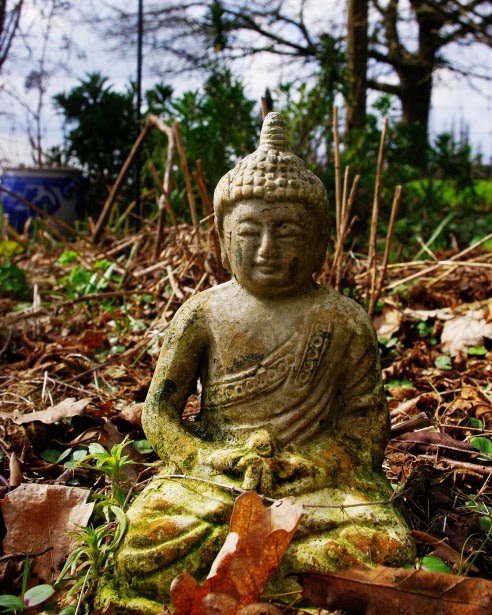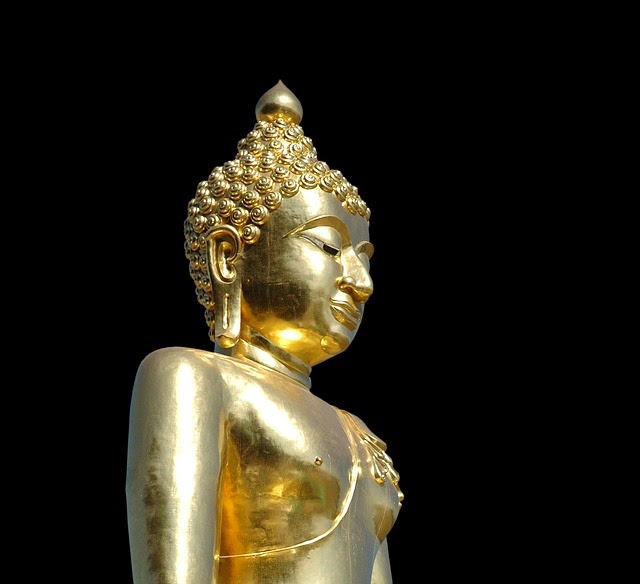CHAPTER EIGHTEEN.
IMPURITY.
To Find More Interesting Resources Click below :
|
Lo! Thou art now a pale and withered leaf;
Death's messengers are close at hand;
Thou in the very gate of Death dost stand,
And yet hast no provision for the way.
236.
Then make thyself an island of defence;
Strive quick; be wise; when all the taints
Of dirt and dust are blown away, the saints
Shall greet thee entering the Happy Land.
237.
Thy life has run its course; thou art come nigh
The King of Death;[1] for thine abode
Thou hast no resting-place upon the road,
And yet hast no provision for the way.
238.
Then make thyself an island of defence;
Strive quick; be wise; blow off the dust
And stains of travel; wipe away the rust;
So shalt thou see no more birth and decay.
239.
The wise and thoughtful man attacks his faults
One after other, momently,
In order due, and rubs them all away,
E'en as a smith blows off the silver's dross,
To Find More Interesting Resources Click below :
|
Just as the iron rust accumulates
Self born; and eats itself away;
So with the man who sinneth; day by day
His own deeds to destruction lead him on,
241.
Texts not repeated oft are soon forgot;
The house neglected soon decays;
Sloth is the bane of beauty; heedless ways
Bring ruin unto him that keepeth watch.
242.
The taint of woman is impurity,
And gifts by stinginess are spoiled,
And mortal man by oft transgression soiled
Finds ruin here, loss in the life to come.
243.
Yet there's a taint far worse than any other.
What is that taint? 'tis ignorance.[2]
Make yourselves free from this, O mendicants!
Wipe off this stain and be ye undefiled.
244.
Life seems an easy thing to him that lives
Wanton and shameless as a crow,
A fault-finder, who through this life doth go
Immodest, insolent, and full of sins.
245.
But life's no easy thing for one restrained
By shame, who seeks to walk aright,
All unattached, withdrawn from vulgar sight;
Who liveth purely and hath eyes to see.
246-7.
He who takes life; whose mouth is full of lies;
Who steals, and fouls another's wife;
A slave to drink, he even in this life
The root of his own fortunes undermines.[3]
248.
O man I know this: "Not easy of control
Are evil ways." Let not thy greed
And wickedness (of misery the seed)
Become thy masters, lest thou suffer long.
249.
According to their trust and faith men give.
Whoso regards with discontent
And jealousy the food for others meant
Cannot get peace of mind by night or day.[4]
250.
But whoso disregards what others get,
Whose heart of jealousy is void,
In whom the root of envy is destroyed,
He gaineth peace of mind by night and day.
251.
There is no fire that burneth like desire;
No beast like hatred can devour;
No snare like folly to entrap hath power;
No river-flood can carry off like greed.
252.
'Tis easy to perceive another's faults;
Hard are one's own faults to descry;
A man will winnow others' faults like chaff;
But as the cheating gambler hides the die,
His own faults he conceals right carefully.
253.
Whoso is watchful for another's faults,
Testy and quick to take offence,
In him his passions will increase, and thence
Further is he from cleansing of his sins.
254.
The sky-path shows no tracks; no outward signs
The treader of the Path betray;[5]
The multitude in outward shows delay;
They who have won the Goal are free from all.[6]
255.
The sky-path shows no tracks; no outward signs
The treader of the Path betray;
Nought lasts; all things embodied pass away;[7]
But nought can shake the All-Awakened Ones.
[1] Yama, Pluto.
[2] Avijjā, the first of the twelve links of the chain of causation and the last of the Fetters to be broken.
[3] Those are the five Precepts of Buddhism.
[4] Bhikkhus, mendicants, have to beg their daily meal.
[5] Samano n'atthi bāhiro. This verse is generally translated, "There is no true disciple outside the pale of Buddhism," and the commentary (P.T.S. text, vol. 3. p. 378) so translates these words, which the Buddha spoke to Subhadda just before His passing away. The context here seems to require the meaning "outward." Cf. v. 92 and vv. 179-80. The perfect leave no traces. "Sky-path," ākāsa, space.
[6] Tathāgatā. The epithet of the Buddha by which He usually describes Himself (cf. N.T. "He who was for to come"). See Sir (now Lord) Robert Chalmer's valuable pamphlet for the meaning of this much discussed epithet (J.R.A.S., Jan. 1898). Nippapañcā Tathāgatā, lit, "is free from the delays of human failings".
[7] Saṁkārā, all compounding factors of entities, persons.








No comments:
Post a Comment